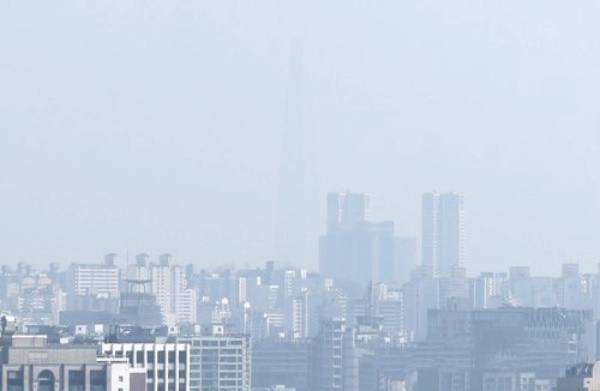
Korea has been hard hit by a particulate matter (PM) problem this winter. PM is the term for “a mixture of solid particles and liquid droplets found in the air”. The density of PM reached “very high” more frequently this year compared to last year’s winter. The “Fine dust Emergency Reduction Act” was promulgated and executed by the Ministry of Environment on Jan. 7 and Jan. 8. According to the Environmental Protection Agency (EPA), PM-2.5, a particulate matter with a diameter of 2.5 micrometers and smaller, could cause respiratory diseases such as impaired lung function, asthma, and heart disease.
The peculiar fine dust concentration rate of Korea calls for drastic measures. The Special Act on Particulate Matter Reduction and Management is an action that aims to reduce fine dust in the short term by strongly restraining cars, factories, etc. Several classes of vehicles are restricted by regulations such as alternative no-driving systems. The plant operation rate of air pollutant emission facilities is also reduced. The act is executed on the day when a city or a province satisfies one of the following conditions. Either when the average density of PM-2.5 exceeds 50 μg/m^3 and is expected to exceed 50 μg/m^3 the next day or when it is expected to exceed 75 μg/m^3 the next day. The cause of fine dust specifies into two primary factors: extrinsic factors, and domestic factors. The act tries to, at least, minimize the effect of the domestic factors of fine dust.
Every winter Koreans suffer more from fine dust and there is a reason why the fine dust level becomes severe every winter. By the winter monsoon, prevailing westerlies, fine dust from China is carried into Korea. As a traveling anticyclone settles down on the Korean Peninsula, atmospheric stagnation intensifies, and then the concentration of fine dust rises.
According to the National Institute of Environmental Research (NIER), extrinsic factors from China take up 65~74% of all fine dust in Korea. Actions like the “Fine dust Emergency Reduction Act” will not be able to pull Korea out of the fine matter problem in the long term since the extrinsic factor is still critical. Although the effect of fine matter is serious on human health, Koreans seem to lack awareness. Like the Ministry of Environment, people should take the domestic factor into account for the time being.


